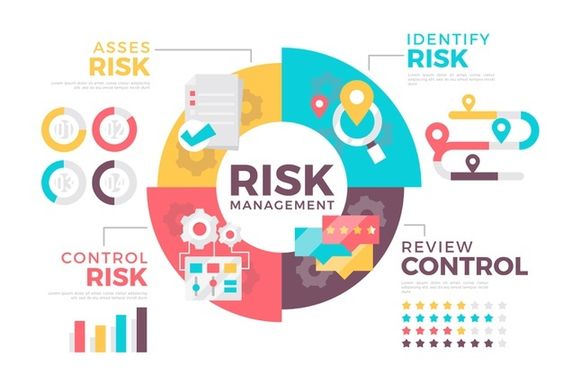8 Key Examples of Effective Risk Management Strategies
Effective risk management is a critical component of business success. Organizations that fail to manage risks successfully can suffer huge losses in revenue, reputation, and customer trust. In this article, I will highlight 8 key examples of effective risk management strategies that organizations can implement to mitigate risks and ensure business continuity.
Conducting Risk Assessments and Identifying Threats
Risk assessments are an essential component of risk management. It involves identifying potential threats to your business’s success and creating plans to mitigate these threats. This approach allows you to proactively plan for future risks and lay down measures before they even occur.
Maintaining an effective Cybersecurity Plan
Cybersecurity risks are a growing concern for businesses of all sizes. It’s important to have an effective cybersecurity plan in place to protect your organization from cyber-threats, data breaches, and potential information theft. An effective cybersecurity plan should include routine vulnerability assessments and system penetration testing to detect any loopholes and strengthen the defense mechanisms.
Developing and Implementing Business Continuity Plans
A business continuity plan (BCP) is a document that outlines the procedures and guidelines that an organization must follow in the event of a crisis or unexpected event. Such crises may include natural disasters, cyber-attacks, pandemics, and so on. By having these plans in place, organizations can respond quickly and effectively to minimize the impact on business operations and reduce potential losses.
Systematic Financial Planning
For any business to succeed, sound financial management is mandatory. Risk management is essential when developing and implementing financial plans, as it helps an organization in forecasting future financial circumstances, making strategic decisions, and protecting itself against possible threats that may arise in the future.
Effective Supply Chain Risk Management
In today’s global economy, supply chain management is a critical component of business success. Supply chain risks can have far-reaching impacts, significantly hindering business continuity. It’s important to identify such risks, including supplier interruptions, bottlenecks, and natural disasters, and document strategies and procedures to mitigate them.
Strengthening Internal Controls
A robust internal control system is essential to prevent fraud, reduce the risks of financial loss, enhance accountability, and ensure compliance with regulatory requirements. Effective internal controls should include regular maintenance of accounting records, routine management of information systems, separation of duties and responsibilities, and proper monitoring of financials.
Effective Crisis Management
Effective crisis management requires thorough planning, preparation, and readiness to minimize the impacts of a crisis. An efficient crisis management team should outline the various procedures, policies, and strategies for dealing with emerging risks, incidents, and unexpected events.
You might find these FREE courses useful
- Program Risk Management in ClickUp
- Risk Management in Personal Finance
- Investment Risk Management
- Market Risk Management: Frameworks & Strategies
- Credit Risk Management: Frameworks and Strategies
- FinTech Risk Management
- Implementing a Risk Management Framework
- Risk Management Specialization
Cultivating a Culture of Risks Management
Lastly, an organizational culture that prioritizes and values risk management plays a crucial role in ensuring business continuity. Such a culture encourages proactive risk management, effective communication, and continuous learning and improvement. Organizational managers must reinforce a culture that embraces risks management to minimize the possibility of catastrophic events and potential losses.
In conclusion, proactive risk management strategies and practices are critical ingredients for business success. This article has highlighted eight examples of effective risk management strategies that organizations can implement to mitigate potential risks and ensure business continuity. By implementing these strategies, companies can build an organizational culture that values and prioritizes risk management, and this will ultimately result in better business outcomes, improved customer trust, and long-term sustainability.
